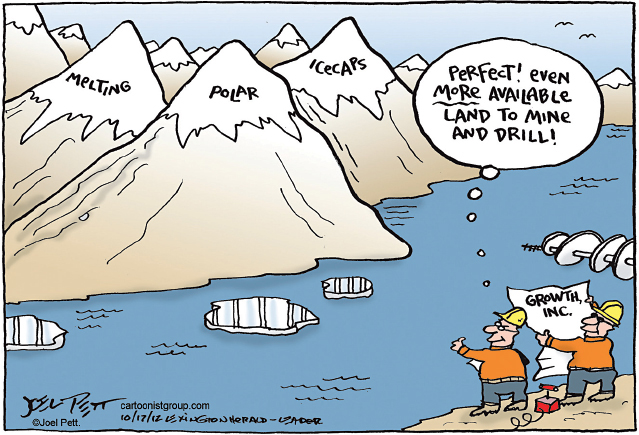Understanding World Societies:
Printed Page 1044
Environmentalism
The modern environmental movement began with concerns about chemical waste, rapid consumption of energy and food supplies, global deforestation, and threats to wildlife. By the 1970s citizens had begun joining together in nongovernmental organizations to pursue preservation or restoration of the natural environment.
The environmental movement is actually several different movements, each with its own agenda. American biologist and writer Rachel Carson was an early proponent of the environmental health movement. In Silent Spring (1962), she warned of the dangers of pesticides and pollution. Environmentalists like Carson acted out of concern that all living things were connected and that damage to one part of an ecological system could have consequences across that ecosystem.
The conservation movement, represented in the United States by the Sierra Club and the Audubon Society, seeks to protect the biodiversity of the planet and emphasizes the spiritual and aesthetic qualities of nature. The ecology movement consists of different groups with somewhat similar agendas, ranging from politically active green parties to the nongovernmental organization Greenpeace. These organizations are concerned about a wide range of environmental issues, and they often highlight the connections between the environment, on the one hand, and social, economic, and political developments, on the other.
Environmentalists today are especially concerned about global warming, the increase of global temperatures over time caused by the buildup of carbon in the atmosphere that captures heat. As a result of global warming, average temperatures have increased worldwide in recent decades, a trend that most scientists expect will intensify without curbs on carbon emissions. Scientists believe that man-
International concerns over the potentially catastrophic consequences of global warming resulted in a 1997 agreement, the Kyoto Protocol, which amended the United Nations Framework Convention on Climate Change. Countries that ratify the Kyoto Protocol agree to reduce their emissions of carbon dioxide and five other greenhouse gases. As of April 2014, 191 countries had ratified it. The most notable exception was the United States. The United Nations and environmental activists have continued to pursue an international environmental accord that can bring all nations into a shared effort to combat climate change.

In the twenty-